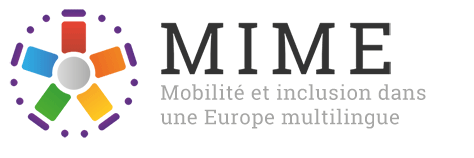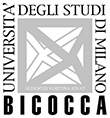
Prof.
Gabriele Iannàccaro
Gabriele Iannàccaro
Task 3.1
Reassessing the language curriculum

Prof.
Mark Fettes (visiting scholar)
Mark Fettes (visiting scholar)
Task 3.2
Informal and non-formal language learning
Università di Milano-Bicocca is a young university founded in 1998, and thanks to the quality of its teaching and research, it has rapidly earned international recognition, with a high position, among the universities created less than 50 ago, in the 2012 Times Higher Education Ranking; the Top 400 World Universities Ranking 2011-12 rates Università di Milano-Bicocca as the first Italian university. With a student enrolment of about 35,000, including 8% from abroad, Università di Milano-Bicocca offers first-rate teaching and research infrastructure to scholars and students of various disciplines, including economics, science, medicine, statistics, sociology, psychology and humanities. Università di Milano-Bicocca's high degree of integration in international networks is reflected in some 500 cooperation agreements with institutions in 41 countries.
Task in the project
Dipartimento di Scienze Umane per la Formazione will lead task 3.1 on “Reassessing the language curriculum”, a particularly central task in MIME given the importance of education language policies. Accordingly, Dipartimento di Scienze Umane per la Formazione will provide back-up information on language education to other teams in all the work packages.
Staff
- Prof. Gabriele Iannàccaro
Experience
The Dipartimento di Scienze Umane per la Formazione task leader is founder and director of the Centre d’Études Linguistiques pour l’Europe based in Vasa/Vaasa (Finland). He has directed or co-directed a number large-scale research projects for the Italian Ministry of Education and the European Union (DG 22), as well as national, regional and local authorities in Europe (mainly in Italy, Latvia, Spain, Finland, Switzerland). He has longstanding experience in carrying out research projects in sociolinguistics, language-identity relations and language education of minorities in Europe, collecting and using data bases with thousands of respondents.
Task in the project
The Dipartimento di Scienze Umane per la Formazione will also lead task 3.2 on “Informal and non-formal language learning” in meeting the needs of speakers of locally non-dominant languages (including both ‘traditional’ minority languages and ‘immigrant’ languages). One of its strategic contributions is to provide, very centrally in the MIME project design, a direct connection to the Canadian experience in language education. Given the importance of this comparative perspective in MIME, Università di Milano-Bicocca will be providing informational background to other teams in all the work packages.
Staff
- Prof. Dr. Mark Fettes
Experience
The partnership takes advantage of the expertise developed by Dipartimento di Scienze Umane per la Formazione in collaboration with the Centre d’Études Linguistiques pour l’Europe, with large-scale research projects for the Italian Ministry of Education and the EU (DG 22), and of the Canadian institution’s strong track record in post-secondary programs and community-based research projects involving education in Canada’s official, immigrant and indigenous languages. The task leader has experience in large-scale projects, currently including Building Inclusive Schools through Imaginative Education Community-University Research Alliances, and Aligning Education and Sustainability in Maple Ridge, BC: A Study of Place-Based Ecological Schooling Community-University Research Alliances, with funding in excess of CAD 1m each.

